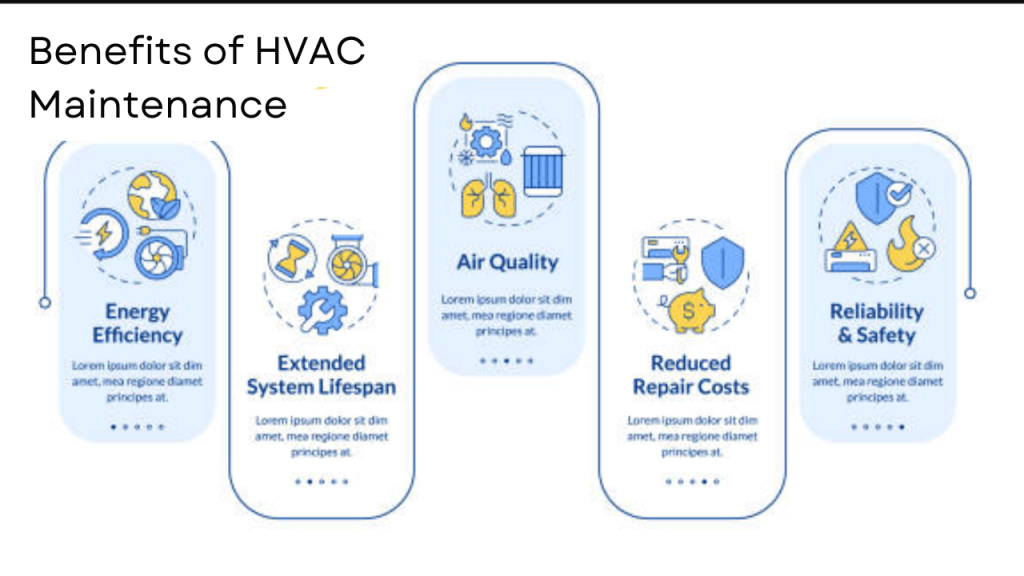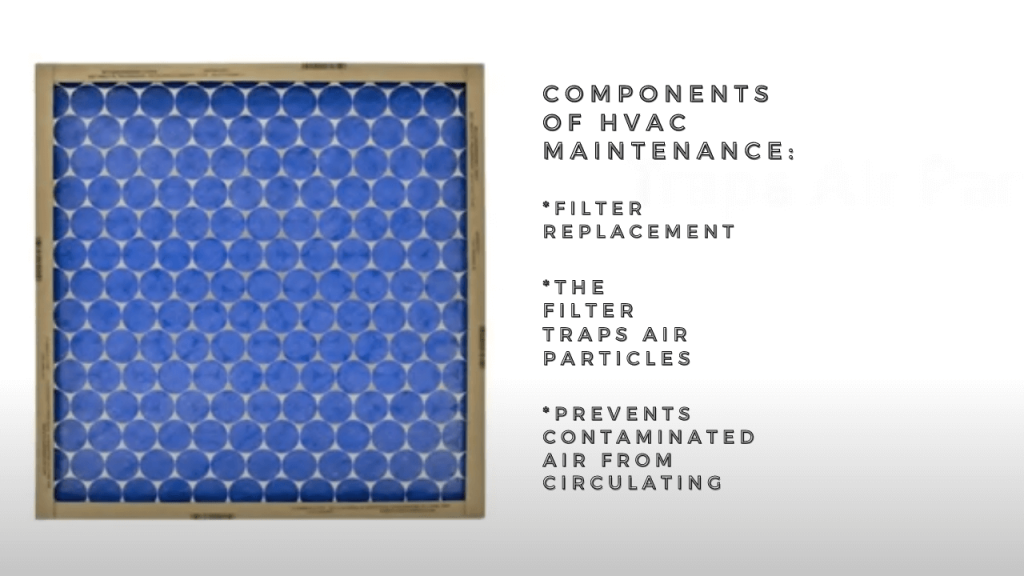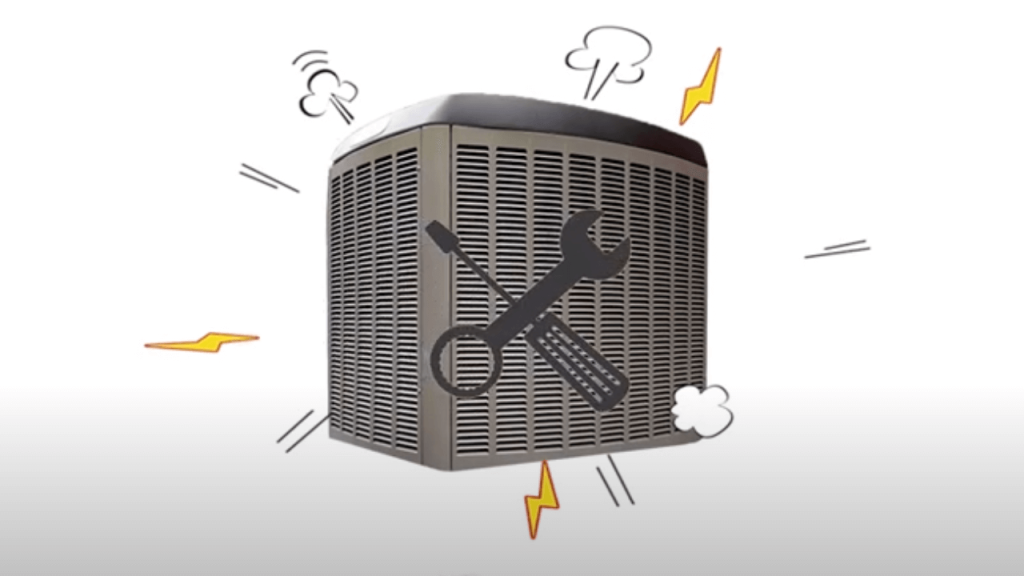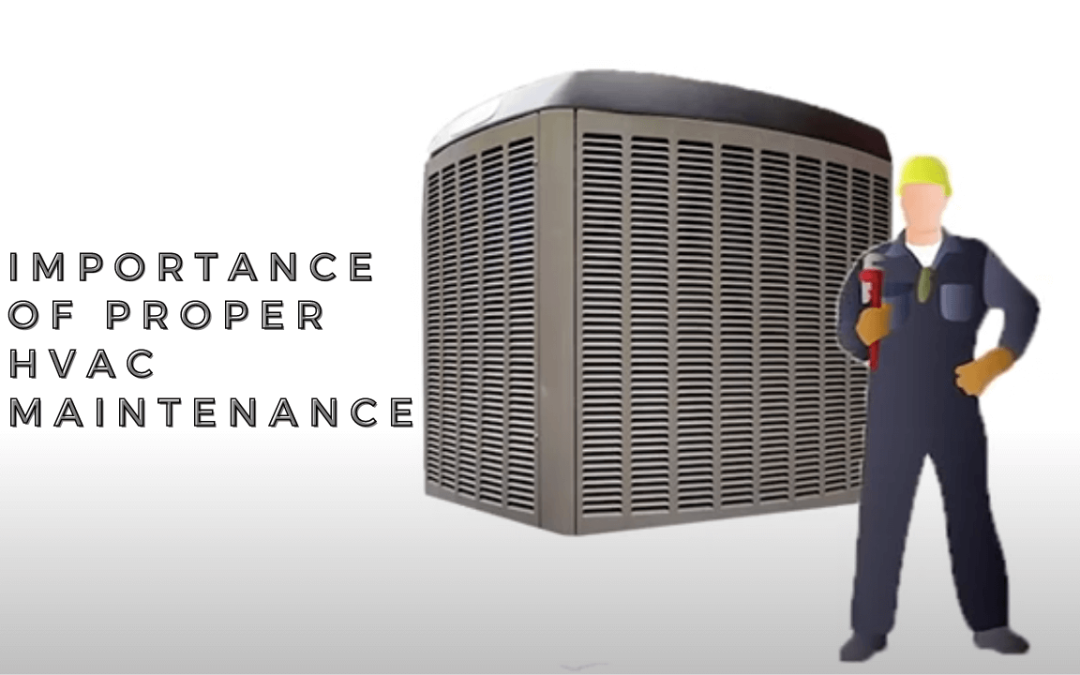Understanding the significance of a comfortable and healthy indoor environment, we acknowledge the pivotal role of HVAC (Heating, Ventilation, and Air Conditioning) systems. These systems are vital for regulating temperature, humidity, and air quality within buildings.
Comprising heating, cooling, and air circulation components, HVAC systems create the necessary indoor comfort. Beyond comfort, they also yield energy savings. Amid escalating energy costs and mounting environmental concerns, optimizing HVAC energy efficiency gains paramount importance. By adopting efficient heating and cooling methods, energy consumption diminishes, curtailing the environmental footprint.
Proper HVAC Maintenance capacity to manage indoor moisture is a common oversight. Superfluous moisture can breed mold and other detriments, harming indoor air quality and occupants’ well-being. HVAC systems assume the role of moisture control, fostering a healthier indoor environment.
To uphold the performance and endurance of HVAC systems, consistent maintenance is imperative. Neglecting upkeep can trigger declines in indoor air quality, elevated energy expenditures, and premature system lifespans. Recognizing this, we underscore the worth of routine maintenance, drawing parallels to our commitment as stewards of essential systems.
In summation, HVAC systems stand as linchpins for sustaining comfortable, healthy, and energy-conscious indoor spaces. Prioritizing system maintenance aligns with our dedication to cultivating sustainable and delightful living environments.
Benefits of HVAC Maintenance

Recognizing the significance of maintaining clean and healthy indoor air, we underscore the importance of proper HVAC maintenance. Adequate upkeep of HVAC systems profoundly influences the quality of indoor air. While air filters initially shield against pollutants and allergens, their efficacy wanes when they accumulate dirt and blockages. Consequently, these harmful particles can circulate, degrading indoor air quality.
Regularly altering air filters and cleansing coils and fans is pivotal for sustaining optimal indoor air quality. This practice averts the accumulation of contaminants and guarantees peak HVAC system performance. For those with allergies or respiratory concerns, this holds heightened importance, as filtered air significantly enhances well-being.
Our comprehension extends beyond indoor realms to outdoor environments, aligning with our ethos as stewards of nature. By emphasizing HVAC maintenance, we actively foster spaces that nurture occupants’ well-being and comfort. Together, let’s uphold the integrity of indoor air quality for the benefit of all.
Increased energy efficiency
Understanding energy efficiency and our carbon footprint, we emphasize well-maintained HVAC systems. A properly serviced HVAC system operates efficiently, curtailing energy usage for heating and cooling. This translates to economical energy bills and reduced environmental impact, aligning with our environmental commitment. Our proactive HVAC upkeep aids energy conservation and environmental mitigation.
Conversely, neglect yields inefficiency, demanding more energy for heating and cooling, heightening bills and environmental effects. As advocates for responsible resource use, we prioritize minimal energy consumption.
By upholding regular HVAC maintenance, we ensure peak efficiency, using energy wisely. This benefits both finances and planet sustainability. Let’s lower energy use, decrease bills, and positively impact the environment through well-maintained HVAC systems.
Cost savings on utility bills
Recognizing the importance of efficient resource management and cost-effective solutions, let’s enhance the text to underscore the benefits of increased energy efficiency and regular HVAC maintenance:
“As emphasized earlier, focusing on energy efficiency in HVAC systems results in substantial utility bill savings. This aligns with our dedication to responsible resource management. By optimizing the peak efficiency of our HVAC systems, we reduce energy consumption, leading to lower utility costs. These savings can then be channeled into other environmentally conscious endeavors.
Moreover, routine HVAC maintenance plays a pivotal role in curbing minor issues before they escalate into expensive repairs. Just as we proactively care for trees to prevent damage, regular HVAC maintenance lets us promptly identify and address potential problems. This approach not only saves us from hefty repairs but also enhances the system’s longevity and sustainability, minimizing waste.
By integrating regular HVAC maintenance into our environmental management practices, we ensure optimal system operation, trim unnecessary expenses, and contribute to resource preservation. Let’s persist in prioritizing energy efficiency and regular HVAC upkeep, embodying a sustainable approach that benefits both our finances and the environment.”
Extended lifespan of HVAC system
Recognizing the importance of maintenance in sustaining natural systems, let’s enhance the text to emphasize the benefits of regular HVAC maintenance:
“Consistent HVAC maintenance is vital for prolonging system lifespan, in line with our principles of sustainability. By committing to regular cleaning and proper lubrication of HVAC components, we reduce wear and tear. This proactive approach minimizes breakdowns and premature replacements, saving resources and lessening environmental impact.
Just as preventive care preserves trees, regular HVAC maintenance ensures prolonged optimal operation. Cleaning and lubricating coils, fans, and motors not only enhance efficiency but also prevent damage from friction and debris. By averting costly repairs and early replacements, we diminish waste and resource use.
Let’s embrace this mindset for HVAC care, understanding that maintenance aligns with sustainability values. By nurturing our systems, we maximize efficiency, trim environmental impact, and secure long-term benefits for both finances and the planet.”
Decreased likelihood of breakdowns and costly repairs
Recognizing the importance of proactive care for natural systems, let’s enhance the text to emphasize the benefits of regular HVAC maintenance:
“Regular HVAC maintenance is essential for catching and addressing minor issues before they become major problems, mirroring our principles of proactive care. Through consistent upkeep, we can identify and resolve small concerns early, reducing the risk of disruptive breakdowns and costly fixes. Similar to our focus on early tree health detection, we apply the same approach to HVAC systems to ensure consistent comfort and top-notch performance.
Applying an arborist’s approach to HVAC maintenance brings tangible advantages to building owners and homeowners alike. By consistently caring for our HVAC systems, we create a proactive shield against unexpected downtime, emergency repairs, and the associated expenses. This proactive stance maintains a harmonious indoor environment and peace of mind by avoiding sudden breakdowns.
Furthermore, regular HVAC maintenance promotes superior indoor air quality, benefiting occupants’ health and well-being. Addressing issues like clogged filters, dirty coils, and airflow blockages reduces pollutants and allergens, aligning with our commitment to fostering a healthy living space.
In summary, regular HVAC maintenance yields extensive benefits. Embracing an arborist’s mindset and investing in routine care result in enhanced indoor air quality, increased energy efficiency, significant savings, extended system lifespan, and the reassurance of reduced breakdown risks.”
By emphasizing the proactive nature of HVAC maintenance and linking it to arborist principles, readers will appreciate the importance of regular upkeep in ensuring effective and cost-efficient HVAC operation.
Components of HVAC Maintenance

Regular inspections are integral to HVAC maintenance, aligning with our thorough assessment mindset to ensure the health of natural systems. During these checks, skilled technicians meticulously examine the HVAC system to uncover potential issues that might compromise performance.
Through meticulous inspections, HVAC technicians spot and tackle problems early, akin to how we detect tree decline signs. They scrutinize the system for wear, leaks, or worn components. Just as we assess tree structure, HVAC inspections evaluate system integrity, identifying weak points.
By spotting issues in these inspections, we address them promptly, preventing system failure and ensuring top performance. This proactive approach tackles small problems before they escalate, saving time and resources.
In summary, inspections are crucial for Proper HVAC Maintenance, echoing our comprehensive assessment ethos. Through rigorous checks, we detect and address wear, leaks, and worn components, fostering HVAC health and longevity.
Filter replacement
Replacing air filters is crucial in HVAC maintenance, reflecting our commitment to fostering vibrant ecosystems. Like healthy soil for plant growth, clean air filters are vital for optimal HVAC operation.
Timely filter replacement maintains unobstructed airflow, like well-drained soil for root respiration. Dirty filters impede airflow, straining HVAC systems and increasing energy usage. This hurts efficiency and raises financial and environmental costs.
Moreover, clean air filters improve indoor air quality, mirroring our effort for pristine environments. Dirty filters can’t capture pollutants, risking occupants’ well-being. Regular filter changes create a healthier indoor space, lessening respiratory risks and promoting well-being.
In summary, replacing air filters parallels our ecosystem nurturing. Prompt changes optimize airflow, cut energy costs, and boost indoor air quality. Just as healthy soil supports trees, clean filters ensure efficient HVAC function.
Cleaning coils and fans
Cleaning coils and fans is pivotal in HVAC upkeep, echoing our dedication to growth and longevity. Like nurturing trees, cleaning ensures efficient HVAC operation.
Coil cleaning mirrors maintaining unobstructed roots. Over time, dirt hampers heat transfer, boosting energy use and utility bills. Cleaning coils optimizes performance, cutting costs, aligning with sustainability.
Cleaning fans parallels promoting airflow. Like trimming branches for circulation, clean fans ensure smooth airflow. Dirty fans strain systems, accelerating wear. Clear fans mitigate strain, enhancing longevity, embracing our commitment to health and vigor.
In summary, cleaning coils and fans mirrors our growth and longevity principles. Clear coils optimize efficiency, reduce costs. Clean fans promote airflow, enhance durability. Like nurturing trees, let’s sustain HVAC vitality through cleanliness.
Lubricating moving parts
Lubricating HVAC parts echoes our nurturing philosophy. Like providing nutrients to trees, lubrication ensures system smoothness and longevity.
Belts and bearings, like tree branches and trunks, facilitate HVAC function. Neglecting lubrication leads to friction, wear, breakdowns. Regular lubrication minimizes stress, aligning with health and resilience.
Adding lubrication aligns with our commitment. As with tree maintenance, it minimizes strain, prevents failures. In summary, lubricating HVAC parts embodies our nurturing principles. By reducing friction, wear, we optimize performance. Apply this mindset for smooth, enduring operation.
Checking refrigerant levels
Verifying and maintaining ideal refrigerant levels in HVAC systems reflects our equilibrium mindset. Like giving trees proper water and nutrients, monitoring refrigerant is crucial for peak system performance.
Correct refrigerant levels are key. Low levels disrupt balance, forcing extra effort for cooling or heating. This strains components, increasing energy use, bills, and shortening lifespan.
Regular checks echo arborist harmony and sustainability. Like nurturing trees, monitoring keeps HVAC balance, enhancing efficiency and lifespan.
In summary, maintaining optimal refrigerant levels echoes our balance philosophy. Recommended levels lessen strain, cut energy waste, extend lifespan. Apply arborist perspective for efficient cooling and heating.
Calibrating thermostats
Fine-tuning HVAC systems mirrors our nurturing philosophy. Like tending to trees’ environment, maintenance cares for vital HVAC components.
Calibrating thermostats, like ensuring tree light balance, is essential. Wrong calibration strains systems, wasting energy. This leads to longer cycles, high costs, and system wear.
Improperly calibrated thermostats mislead, causing excessive energy use. Strain accelerates wear, reducing lifespan.
In summary, HVAC maintenance involves: inspections, filter changes, coil and fan cleaning, parts lubrication, refrigerant checks, and precise thermostat calibration. Neglecting any harms efficiency, air quality, and function. Arborist perspective fosters balance, efficiency, longevity. Invest in regular HVAC care for a sustainable, harmonious environment.
The Importance of Hiring a Professional for HVAC Maintenance

Expert HVAC technicians, like skilled arborists, bring precision to system maintenance and repair. Their training and knowledge enable issue spotting and optimal solutions. As we trust arborists for trees, we rely on HVAC experts.
DIY HVAC care risks costly errors and danger, much like untrained tree care. HVAC systems involve complex components, electricity, and hazards needing expertise.
By depending on professionals, HVAC intricacies are secure. These experts diagnose and recommend, just as arborists prescribe tree care.
In short, valuing HVAC pros echoes skilled arborist importance. Expertise ensures results, be it trees or systems. Untrained HVAC efforts lead to errors. Let pros guarantee system safety and longevity, like arborists protect trees.
Safety
Like the arboreal realm, HVAC systems have hazards, especially without proper training and gear. Refrigerant, potent and risky, demands cautious handling. Technicians, trained and equipped, ensure safe management.
Refrigerant risks echo tree sap hazards. Expertise is vital. Like arborists’ tools for trees, HVAC techs use knowledge and gear for safe refrigerant handling.
Technicians train hard, like arborists’ knowledge. They grasp HVAC intricacies, hazardous substance management. They follow protocols for safety, shielding themselves and others.
Much like arborists’ protective gear, HVAC techs have safety equipment. Goggles, gloves, respirators guard against risks. They follow standards for safety while working on HVAC systems.
In summary, as trees pose risks without gear, HVAC systems lack training. Refrigerant needs care. Technicians, trained and equipped, manage dangers. Let experts safeguard HVAC systems, mirroring arborists’ role in tree care safety.
Efficiency
Similar to seasoned experts with advanced tools, HVAC technicians possess tailored instruments for efficient maintenance. These tools ensure precise work, optimizing HVAC performance.
Just as arborists use knowledge and tech for tree needs, HVAC techs adopt industry advancements. They stay updated for issue identification and solutions.
Like the evolving arboreal realm, HVAC advances create efficient upkeep paths. Techs embrace progress, delivering superior service.
Much like arborists’ tree expertise, HVAC techs’ knowledge and tools optimize performance. Advanced tech aids diagnostics, adjustments, repairs.
In summary, HVAC technicians, like arborists, wield tools, equipment, and industry knowledge. Efficiency thrives. Entrust HVAC systems to experts, as with tree care by arborists.
Prevention of future problems
Expert HVAC technicians, like vigilant tree caregivers, spot potential issues early. Their skills detect HVAC irregularities, preventing escalation.
Similar to arborists’ tree health checks, HVAC techs assess systems proactively. They tackle small problems to avoid big ones, like arborists’ preemptive measures for trees.
Like arborists’ branch trimming, HVAC techs optimize performance and prevent issues. Their timely actions ensure smooth HVAC operation, avoiding costly breakdowns.
In summary, HVAC techs’ diligence mirrors arborist efforts. They prevent issues, sparing owners from repairs and downtime. Like trusting arborists for trees, rely on HVAC experts for system well-being.
Compliance with regulations
HVAC systems, like trees, follow regulations for safe operation. HVAC experts understand these rules, ensuring compliance.
Similar to arborists’ tree knowledge, HVAC techs stay current with evolving rules. They ensure systems meet safety, efficiency, and environmental standards. Hiring pros ensures legal operation.
Like arborists’ care, HVAC techs prioritize safety, efficiency, and longevity. Their expertise and tools adhere to regulations. This avoids costly repairs and downtime, maintaining comfort.
In summary, hiring professional HVAC techs, like arborists’ compliance, is vital for safety and efficiency. Expertise safeguards occupants, minimizes risks, repairs. Prioritize HVAC pros for lasting indoor comfort.
The Benefits of Proper HVAC Maintenance

Maintaining HVAC systems mirrors tree care for indoor well-being. It improves air quality, filtering pollutants for comfort.
Just as arborists clear debris, HVAC replaces air filters. Dirty filters compromise air quality. Regular replacement optimizes system function.
Similar to tree canopy cleaning, HVAC coils and fans need regular cleaning. Dirty coils affect efficiency, fans obstruct air movement. Cleaning maximizes performance.
Better air quality benefits those with allergies, as arborists prioritize tree inhabitants. Proper HVAC upkeep supports respiratory health, reducing allergens.
In summary, HVAC maintenance, like tree care, enhances indoor air quality. Regular filter changes, coil and fan cleaning improve comfort. Better air quality supports well-being, especially for sensitivities.
Lower energy bills
A maintained HVAC system thrives like an ecosystem, saving energy and costs. Regular upkeep ensures peak efficiency and lower bills.
Similar to arborists’ tree care, HVAC maintenance optimizes operation. Regular checks address issues, promoting smooth, efficient functioning.
Efficiency is vital for HVAC systems, as arborists place trees for sunlight. Maintenance fine-tunes performance, reducing energy waste while keeping comfort.
HVAC techs, like arborists, ensure efficiency. They detect inefficiencies, curbing waste and expenses, much like arborists foster vibrant trees.
In summary, well-maintained HVAC systems balance efficiency and savings. Regular care optimizes operation, lowers energy bills, fostering a sustainable environment. Like arborists for trees, HVAC maintenance cultivates efficiency and cost-effectiveness.
Increased lifespan of the system
Much like expert tree care promotes longevity, proper HVAC maintenance ensures system durability. Regular checks and fixes prevent costly issues, extending its lifespan.
HVAC techs, like arborists with trees, assess systems for concerns. Addressing minor issues prevents major problems and early wear, akin to removing weak branches.
Prompt fixes reduce strain, similar to arborists trimming trees for strength. HVAC care prevents breakdowns, saving costs and extending the system’s life.
Just as arborists proactively tend to trees, HVAC maintenance prevents breakdowns. Attentive care saves money and prolongs the system’s effectiveness.
In summary, maintaining HVAC systems parallels tree care. Preventing minor problems saves money and extends longevity, fostering a reliable, enduring system.
Fewer emergency repairs
Much like vigilant tree care, regular HVAC maintenance takes a proactive approach. Identifying and fixing issues early avoids sudden breakdowns, reducing financial and operational disruptions.
Similar to tree inspections, HVAC technicians assess for vulnerabilities. Addressing these promptly prevents surprises for occupants, as arborists do with trees.
Proactive HVAC care strengthens the system’s resilience, just as arborists fortify trees. Timely repairs keep it efficient and reliable over time.
Preventive HVAC maintenance, like arborists preparing trees for storms, prevents emergencies. Regular upkeep saves costs and ensures peace of mind for building owners and homeowners.
In summary, the preventive approach of arborists translates to HVAC care. Swift issue-solving shields against unexpected breakdowns, securing finances and comfort. As with trees, routine HVAC maintenance guarantees reliable, efficient operation for an uninterrupted indoor environment.
Improved system performance
Much like attentive tree care, proper HVAC maintenance nurtures system performance for optimal building comfort. Regular upkeep fine-tunes temperature control, creating an inviting indoor environment.
Similar to tree health care, HVAC maintenance offers various benefits. Replacing air filters and removing pollutants enhance indoor air quality, benefiting occupants with respiratory sensitivities.
Like tree vitality, HVAC maintenance champions energy efficiency. Optimizing performance reduces energy bills, aligning with environmental responsibility and cost savings.
Just as trees are nurtured for longevity, regular HVAC maintenance extends system life. Addressing issues early prevents breakdowns, maximizing returns and ensuring dependable performance.
In summary, proper HVAC maintenance yields numerous advantages: better indoor air quality, lower energy bills, extended system life, fewer emergency repairs, and enhanced performance. Just as arborists care for trees, HVAC maintenance guarantees occupant well-being, energy savings, and system longevity.
Conclusion
In conclusion, similar to nurturing trees, proper HVAC maintenance ensures system safety, efficiency, and longevity. Neglect leads to issues like compromised air quality, higher energy bills, breakdowns, and shortened equipment life.
Investing in professional HVAC maintenance offers numerous benefits. Improved air quality enhances occupant health, lowers energy costs, extends system life, reduces emergencies, and optimizes performance.
Skimping on maintenance to save money carries greater risks. Regular upkeep curbs energy costs, prevents expensive repairs, and maximizes system life.

